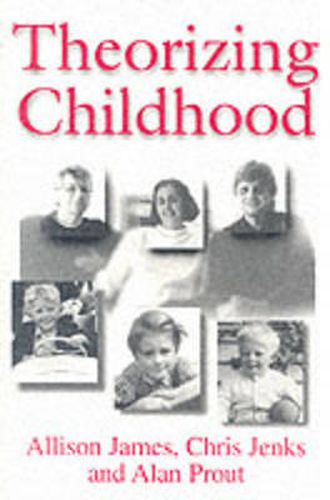Readings Newsletter
Become a Readings Member to make your shopping experience even easier.
Sign in or sign up for free!
You’re not far away from qualifying for FREE standard shipping within Australia
You’ve qualified for FREE standard shipping within Australia
The cart is loading…






In recent years there has been a rapid growth of interest in the sociological study of childhood. This book brings together the major developments in the field. Drawing on a large body of contemporary sociological and anthropological research, the book develops key links between the study of childhood and social theory, exposing its historical, political and cultural dimensions. Through a consideration of the twin dimensions of childhood - as a structural feature of societies and as a context of children’s everyday lives - the book reveals childhood’s socially constructed character. Exploring the spatial and temporal boundaries of children’s lives, the authors set out the theoretical contexts within which more empirical studies of childhood are embedded. Rather than using conventional categories of home, school and play, Theorizing Childhood is organized round themes such as space, time, culture, the body and work. In this way, the book explores the differences in recent approaches to childhood research, inviting valuable new insights into the study of childhood. Theorizing Childhood is a timely book which demonstrates the centrality of childhood in sociological theory and contemporary debates concerning the state, welfare and morality.
$9.00 standard shipping within Australia
FREE standard shipping within Australia for orders over $100.00
Express & International shipping calculated at checkout
In recent years there has been a rapid growth of interest in the sociological study of childhood. This book brings together the major developments in the field. Drawing on a large body of contemporary sociological and anthropological research, the book develops key links between the study of childhood and social theory, exposing its historical, political and cultural dimensions. Through a consideration of the twin dimensions of childhood - as a structural feature of societies and as a context of children’s everyday lives - the book reveals childhood’s socially constructed character. Exploring the spatial and temporal boundaries of children’s lives, the authors set out the theoretical contexts within which more empirical studies of childhood are embedded. Rather than using conventional categories of home, school and play, Theorizing Childhood is organized round themes such as space, time, culture, the body and work. In this way, the book explores the differences in recent approaches to childhood research, inviting valuable new insights into the study of childhood. Theorizing Childhood is a timely book which demonstrates the centrality of childhood in sociological theory and contemporary debates concerning the state, welfare and morality.